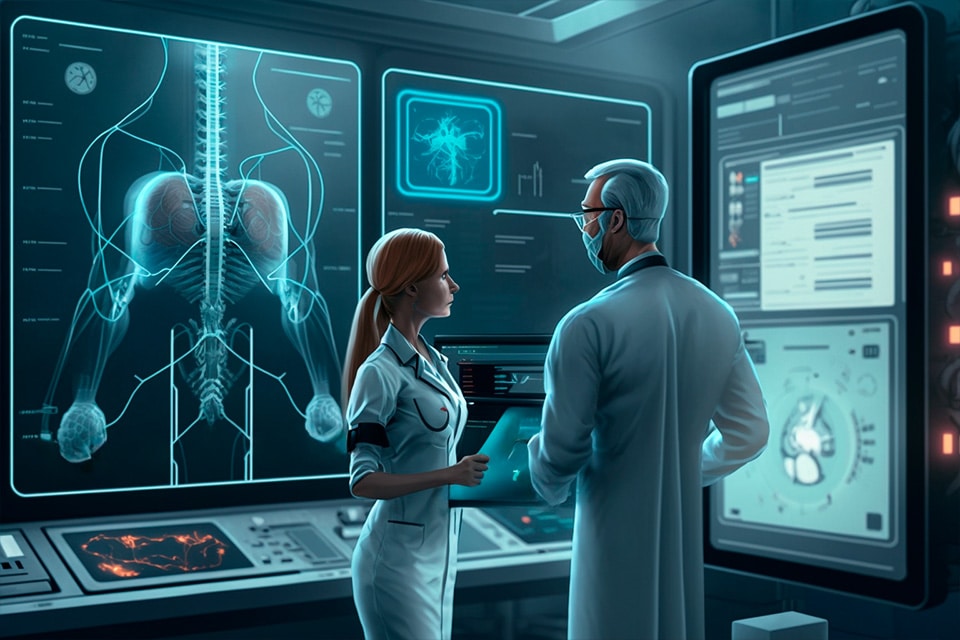
AI’s Leap into Healthcare: Revolutionizing Diagnosis and TreatmentAI’s Leap into Healthcare: Revolutionizing Diagnosis and Treatment Artificial intelligence (AI) is transforming the landscape of healthcare, ushering in an era of unprecedented advancements in diagnosis and treatment. With its ability to process vast amounts of data, identify patterns, and make predictions, AI is empowering healthcare professionals to achieve levels of precision and efficiency that were once unimaginable. Enhanced Diagnosis AI-powered systems can analyze medical images, such as MRI scans and X-rays, with remarkable accuracy. These systems can detect subtle abnormalities that may be missed by the human eye, leading to earlier and more precise diagnoses. For example, AI algorithms have been developed to identify early signs of cancer, allowing for timely intervention and increased survival rates. Personalized Treatment AI can tailor treatment plans to individual patient needs by considering a wide range of factors, including medical history, genetics, and lifestyle. By mining patient data, AI algorithms can identify patterns that inform personalized treatment strategies, resulting in more effective and less invasive therapies. For instance, AI is used to optimize chemotherapy regimens for cancer patients, reducing side effects while maximizing efficacy. Remote Monitoring and Prediction AI-enabled devices can continuously monitor patients’ vital signs and medical data remotely. These devices can detect changes in patterns that may indicate an impending medical event, allowing for proactive intervention. Additionally, AI algorithms can analyze patient data to predict the risk of developing certain diseases, enabling early screening and preventive measures. Drug Discovery and Development AI is accelerating the process of drug discovery and development. By analyzing vast databases of chemical compounds, AI can identify potential drug candidates that target specific diseases. AI also speeds up clinical trials by analyzing patient data and identifying those who are most likely to benefit from new treatments. Challenges and Considerations While AI holds immense promise for healthcare, it also presents challenges that need to be addressed: * Data Privacy and Security: AI systems rely on vast amounts of patient data, raising concerns about patient privacy and data security. * Bias and Fairness: It is crucial to ensure that AI systems are unbiased and fair, as they can potentially perpetuate existing disparities in healthcare. * Clinical Validation and Regulation: AI-powered diagnostic and treatment tools require thorough clinical validation and regulatory approval before they can be widely adopted. Conclusion AI’s leap into healthcare is revolutionizing the way we diagnose and treat diseases. As AI systems become more sophisticated and integrated into clinical practice, they have the potential to improve patient outcomes, reduce costs, and empower healthcare professionals with unprecedented capabilities. By addressing the challenges and ensuring that AI is used ethically and responsibly, we can harness its full potential to create a future where healthcare is more personalized, precise, and accessible than ever before.
Posted inNews